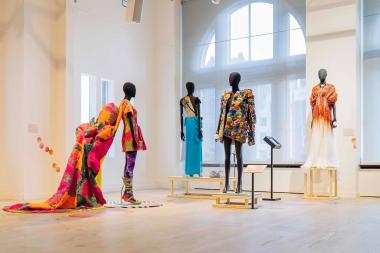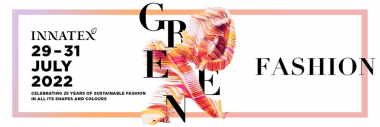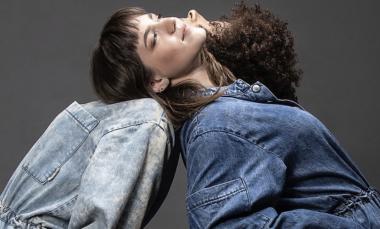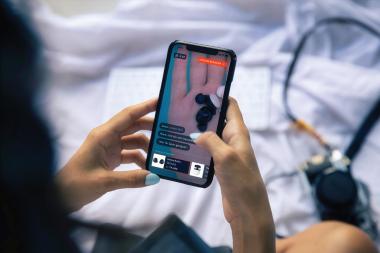Fashion for Good Museum: Final exhibition “What goes around comes around”
The Fashion for Good museum in Amsterdam marks its 6 year journey with a special fashion exhibition focused on circularity, called What Goes Around Comes Around. Honing in on how circularity plays out in different circles of influence, the exhibition showcases inspirational displays that make tangible what a circular fashion industry will look like.
What Goes Around Comes Around pays homage to the extraordinary work of pioneering artists, innovators and designers working to shift the fashion industry with new solutions. The exhibition opens January 27, 2024 and will be open to the public for 5 months. It is the grand finale, as the Museum is closing its doors. As such it will be the Museum’s final call to collective action, which the fashion industry still so highly needs.
“We are highlighting three areas in What Goes Around Comes Around", explains curator Sophie Jager-van Duren at the Fashion for Good Museum. “First: new work by local artists Atelier Reservé and The Patchwork Family, design collectives working towards circularity, demonstrating what is happening right now. We are also showing looks from established designers BOTTER, Ronald van der Kemp and Marga Weimans, Yuima Nakazato and Nicole McLaughlin. Second, the community, with an installation for visitors to participate in, planting the seed that we need each other to change the fashion system. Lastly, the industry - honing in on examples of innovations and technologies. We invited designers to create new work with circular materials including Living Ink, MIRUM, Altmat and Biophilica.”
Today’s fashion industry is caught in a vicious cycle of ‘take-make-waste’ and this system has a growing negative impact on people and the planet. For instance, in Europe, the average consumer is responsible for 15 kilos of textile waste per year and these numbers are increasing. To address this, we need action from individuals, the industry and society alike to go from a linear take-make-waste model into one that is circular by design.
The Fashion for Good Museum is inviting anybody to come visit its final exhibition and learn from concrete examples, to understand the current state of the fashion industry, gain the tools for taking individual or collective action and be inspired by circular fashion available today.
Designing for circularity means designing without creating waste or pollution, as all materials are continually reused instead of discarded. A circular system is restorative and regenerative and reduces pressure on natural resources. The ultimate goal of the exhibition is to put circularity into practice, help people envision a circular economy based on community practices and empower visitors to take collective action, starting in the museum but extending to their homes and daily lives.
Through the exhibition and its public programme, which consists of interactive workshops and educational events, the museum functions as a community space where visitors are invited to learn, gain new perspectives and are exposed to inspiring examples, building the skills and knowledge to create positive change. The upcoming few months there are multiple events, educational toolkits and other opportunities to join us, all open for the public, keep an eye out on our website and social media channels for the latest updates.
The exhibition is open for the public from Saturday 27th of January until June 5th 2024, marking World Environment Day on June 5th as the final closing day of the museum.
Fashion for Good



























